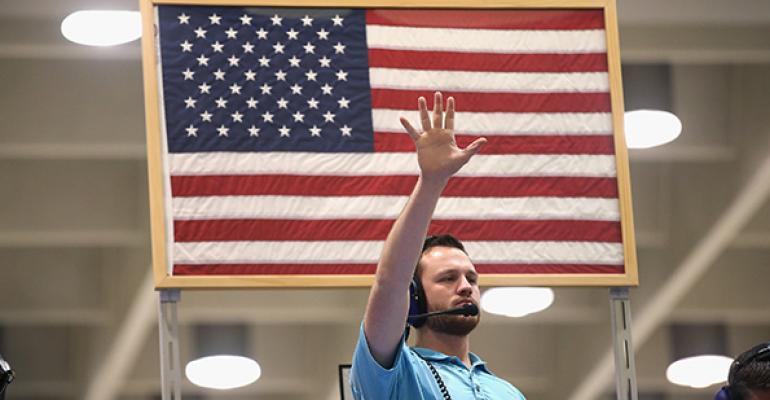The bond market’s second week of the year was another setback, aided by reports of diminished interest from Japan (trimming the size of quantitative easing) and reports that Chinese officials are recommending to slow or halt its buying of Treasurys. That, combined with a series of other nuances, drove a technical sell-off and we all know that technical moves, in this case the 10-year U.S. Treasury Note breaking 2.5 percent, have a momentum all their own—though requiring fundamental rationales. The latter were around, though supply when the market’s already on the defensive surely adds to the pressure.
Let me steal a page from the momentum crowd talking about “stocks melting up” and such—let it run. The fact that the bond market retreated during the first week of the year on ‘old’ news and in the second week on very little new economic news, though Wednesday saw softer JOLTS (where job openings slid to a six-month low) and Import Price data barely rising at all, is revealing.
I read in the Financial Times that “Trump takes ‘America First’ message off-piste” with a plan to go to Davos. There is a twist here I find bothersome; the origination of the ‘America First’ slogan came from a nefarious crowd of isolationists in the 1930s, including an awful lot of Nazi sympathizers (though I won’t tar all of them with that brush). But it’s out there in a newish guise and the idea that it’s going to Davos seems more likely to generate “piste-off” feelings than off-piste. I’ll leave that one open but admit my goal was really to say piste-off.

Off course, there has been the rise in TIPS’ break-even inflation rates (BEIR being the difference between the yield on a 10-year note and its inflation-protected variety) and evidence of TIPs buying from the likes of retail investors, as evidenced by EPFR’s flow insights.
The flows make sense and given the recent gain to headline CPI, the price action also makes sense. There is a seasonal tendency for TIPS BEIRs to rise in the first months of the year as well. Since 2010, TIPS BEIRs have risen in 4 of those 7 years into about the 18th week of the given year. They’ve been steady in 2 of those years, and tended to slip in 2 years. However, even with the latter pair they rose for the first four weeks. In short, TIPS are behaving pretty much as they normally do.
David Ader is Chief Macro Strategist for Informa Financial Intelligence.





